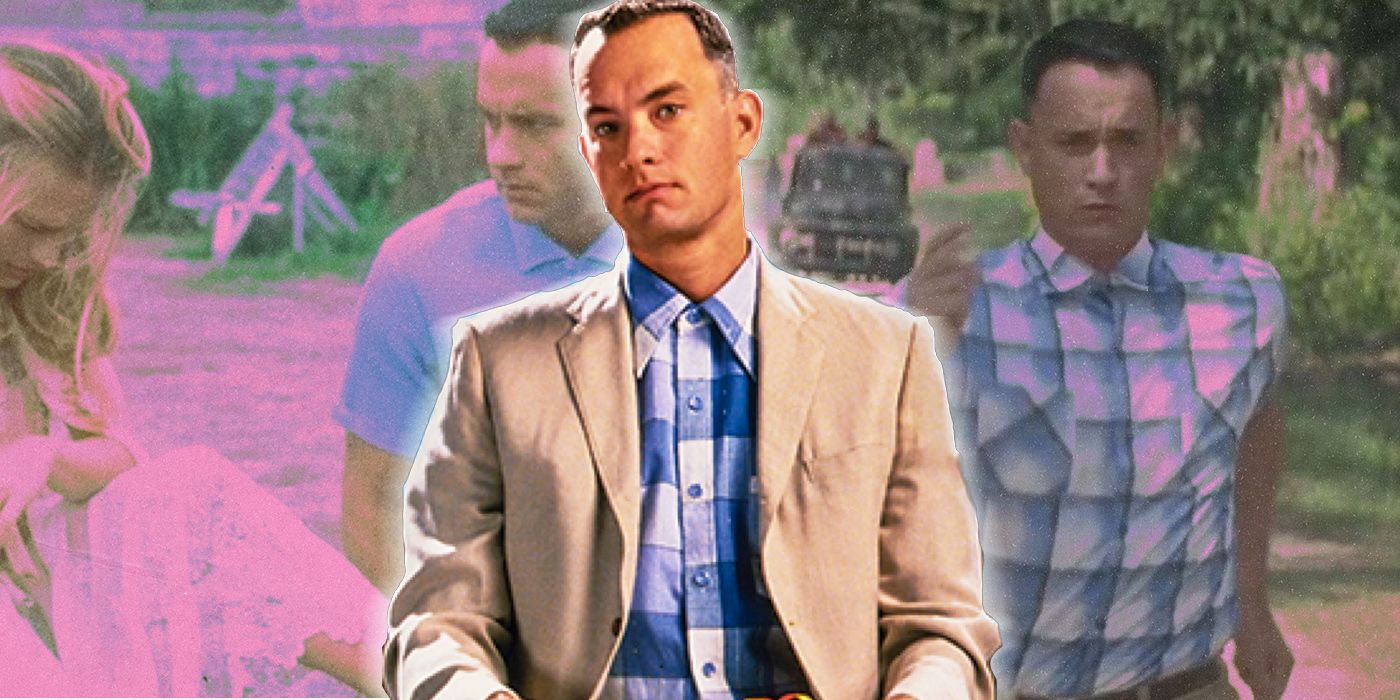Summary
Forrest Gump likely falls on the Autism Spectrum, with his unique narration immersing audiences in his world.
Gump’s focus on tasks and social awkwardness are characteristic of ASD, creating relatable experiences for many.
The movie’s depiction of a neurodivergent hero allows viewers to relate to Gump’s journey, resonating with diverse audiences.
Most people who have watched the movie Forrest Gump can tell the titular character is not neurotypical. While both the author of the 1986 novel, Winston Groom, and Robert Zemeckis, the director of the 1994 movie, say Gump has no specific diagnosis, that hasn’t stopped speculation.
Most of the information available online is conjecture by fans who relate to Gump in some way, although some professionals have tried their hand at a diagnosis. However, the consensus is that Gump has at least two conditions. While the acclaimed Forrest Gump might not be a 1:1 representation of these conditions, the movie is an interesting and strangely mainstream look at someone who isn’t neurotypical.
Updated by Timothy Blake Donohoo on May 7, 2024: Forrest Gump is a beloved movie to many, though it also raises several questions about the main character. The truth concerning Forrest Gump’s disability has eluded viewers for decades now, with many believing that Forrest Gump had autism. There’s evidence for this, among other issues, that the character had, but the exact Forrest Gump condition in the movie is still mostly unknown. This reflects the fact that it was merely a colorful and inspired movie, namely one that was produced in a different time period.
Was Forrest Gump Autistic?

 Related How Two of Dick Wolf’s Police Procedurals Tackle Mental Health
Related How Two of Dick Wolf’s Police Procedurals Tackle Mental Health
Mental health is an important topic that’s being explored in entertainment. But two iconic police procedurals are exploring the topic in a new way.
First, Gump likely falls somewhere on the Autism Spectrum. In fact, in a paper published in 1996 by Dr. Shinji Ijichi, M.D. and Dr. Naomi Ijichi, M.D., Forrest Gump has that very diagnosis based on information gleaned from Groom’s novel. They specifically looked at Groom’s descriptions of Gump’s interactions with his world and other people, comparing those to the DSM-IV criterion for a medical diagnosis of autism spectrum disorder, ASD. They concluded that Gump meets the requirements.
Gump having autism is a more straightforward conclusion to reach, especially since Gump himself narrates the book and movie. This immerses the audience in his unique point of view. To many familiar with ASD or diagnosed with it, Gump’s habits and outlooks hit close to home. Two of the most glaring examples are his awkwardness with social interaction and his total focus on a single task.
Many people with ASD exhibit the same focus Gump gives his drill instructor, ping pong, shrimping, and running. Once taken with a task, they can be quite single-minded. Likewise, Forrest Gump repeatedly has trouble understanding the social cues of the people and situations around him, starting early in his childhood. For example, when he misses little Jenny’s distress and apparent abuse by completely misunderstanding the appropriateness of her father’s actions toward his daughters.
What Was Wrong With Forrest Gump’s Legs?
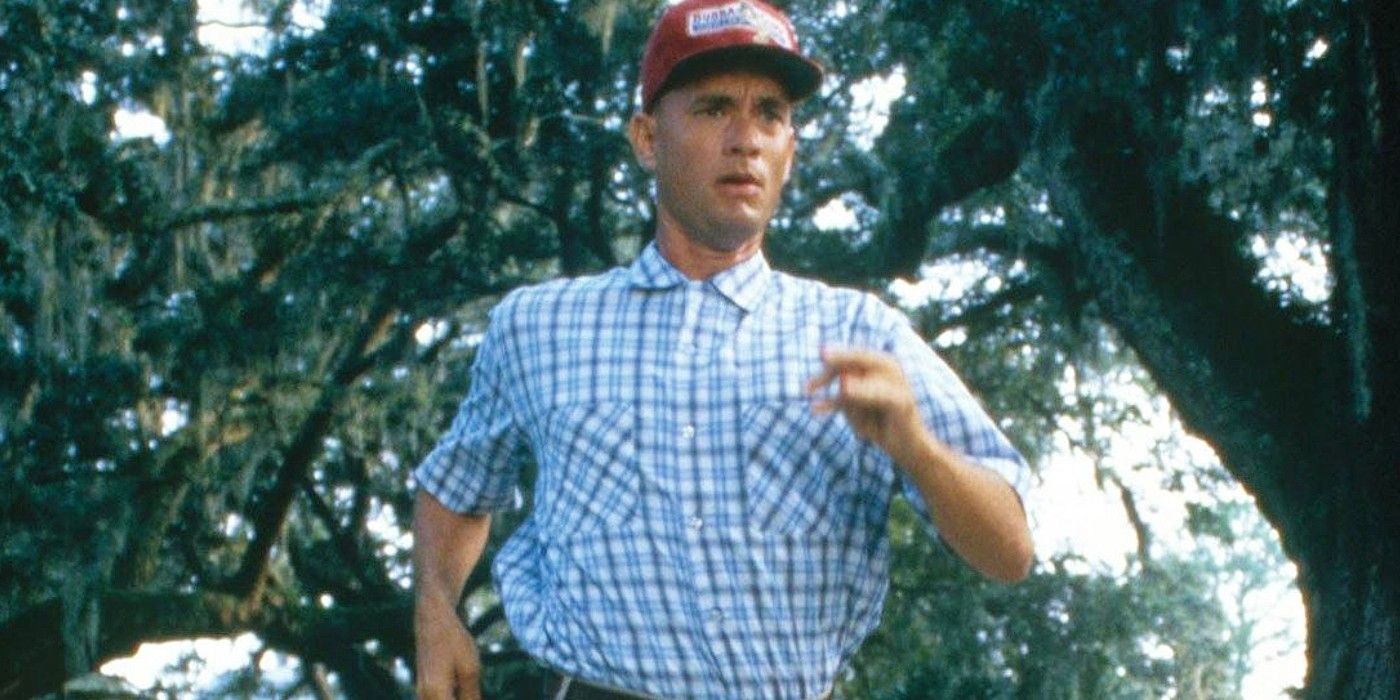
The second condition involves Gump’s need for leg braces as a child. The two leading theories suggest Gump had either a mild case of cerebral palsy or polio. Unfortunately for curious fans, the need for Gump’s leg braces remains officially undiagnosed. However, Forrest himself explains early on in the story that he was born with very strong legs, but his spine was a little crooked, suggesting he may have had mild scoliosis. Along with his mental and social differences, it was a good way to create a diverse movie hero when such a concept wasn’t exactly common.
Forrest Gump Explores History Through A Neurodivergent Lens
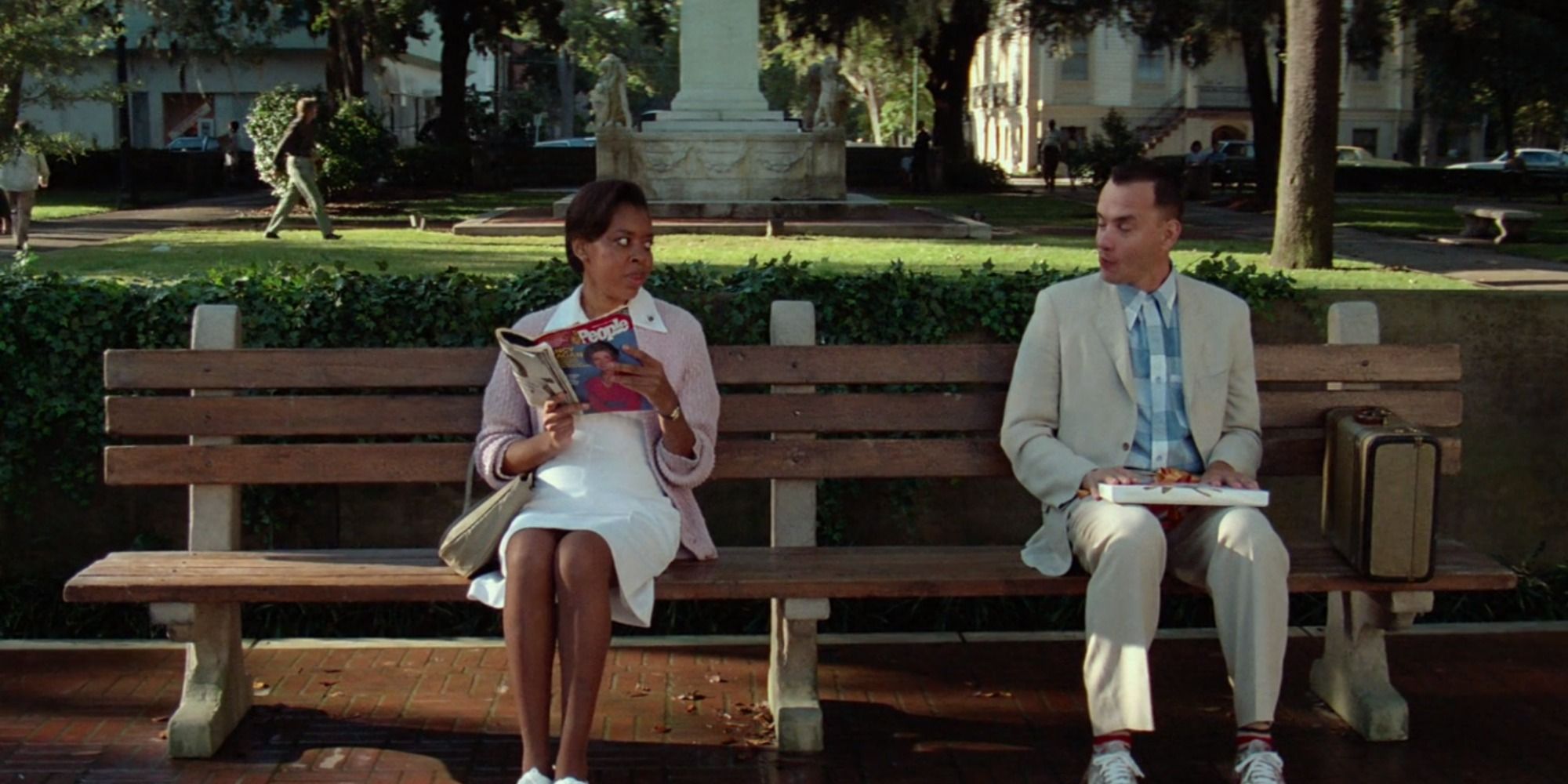
 Related Cast Away: What Was In The FedEx Package That Tom Hanks Never Opens?
Related Cast Away: What Was In The FedEx Package That Tom Hanks Never Opens?
Tom Hanks spends nearly the entirety of Cast Away with a single unopened FedEx package, but what was in there during the movie?
Some critics claimed that Forrest Gump was political or carried a conservative agenda and, as a result, discounted the seriousness of many of the events and movements portrayed in the film. Producer Steve Tisch said, “Forrest Gump isn’t about politics or conservative values. It’s about humanity,” while giving his Academy Award acceptance speech. Actor Tom Hanks, who played Forrest Gump, agreed, telling Jeff Saporito in an interview that “the film is nonpolitical and thus nonjudgmental.”
The counterargument is that if a movie is going to show important points in history, including significant and politically charged events, then it, by nature, becomes a political beast, leaning whichever way the movie’s lens focuses on the events. Since many key happenings of the ’60s and ’70s become a bit of a joke once Gump inserts himself and his naïveté into the middle, critics quickly asserted that this was a dismissal of all social importance.
2:08
 Related 10 Best Tom Hanks Movies of All Time, Ranked
Related 10 Best Tom Hanks Movies of All Time, Ranked
Tom Hanks has had many famous roles in dozens of iconic movies. But from Big to Toy Story, what are some of the best movies he’s been in?
However, if one were to consider that the movie’s narrator holds a neurodivergent perception of life, Gump’s interactions take on a whole new brilliance. By nature, Forrest Gump wouldn’t connect to or understand the emotional drives of those swirling around him in their frenzy of change. He would naturally gravitate toward and cling to those situations and concepts which were most familiar to him. So, rather than being dismissive, the plot becomes a statement of how the world can see around individuals like Forrest Gump, sweeping them along for the ride without them connecting in the way others would expect or prefer. This isn’t something to take offense to, but rather to embrace as a unique view, especially given what Forrest Gump’s disability may be.
When Groom published his book in 1986, ASD was still largely conceptual. Thorough research into the condition was a thing of the future. So, it’s unlikely Groom had a specific medical diagnosis in mind when he wrote Gump’s character. Likewise, when Zemeckis put Gump on the big screen, ASD still wasn’t being broadly applied as a diagnosis and was even less understood by the public. Between the two creative minds, putting a main character with a different viewpoint for the public to see was itself a gift. Such a dramatic direction wasn’t common during this era, and it paved the way for similarly dramatic, sad films and TV shows to be made in the future.
Forrest Gump’s Quality Makes It Perfect For All Viewers
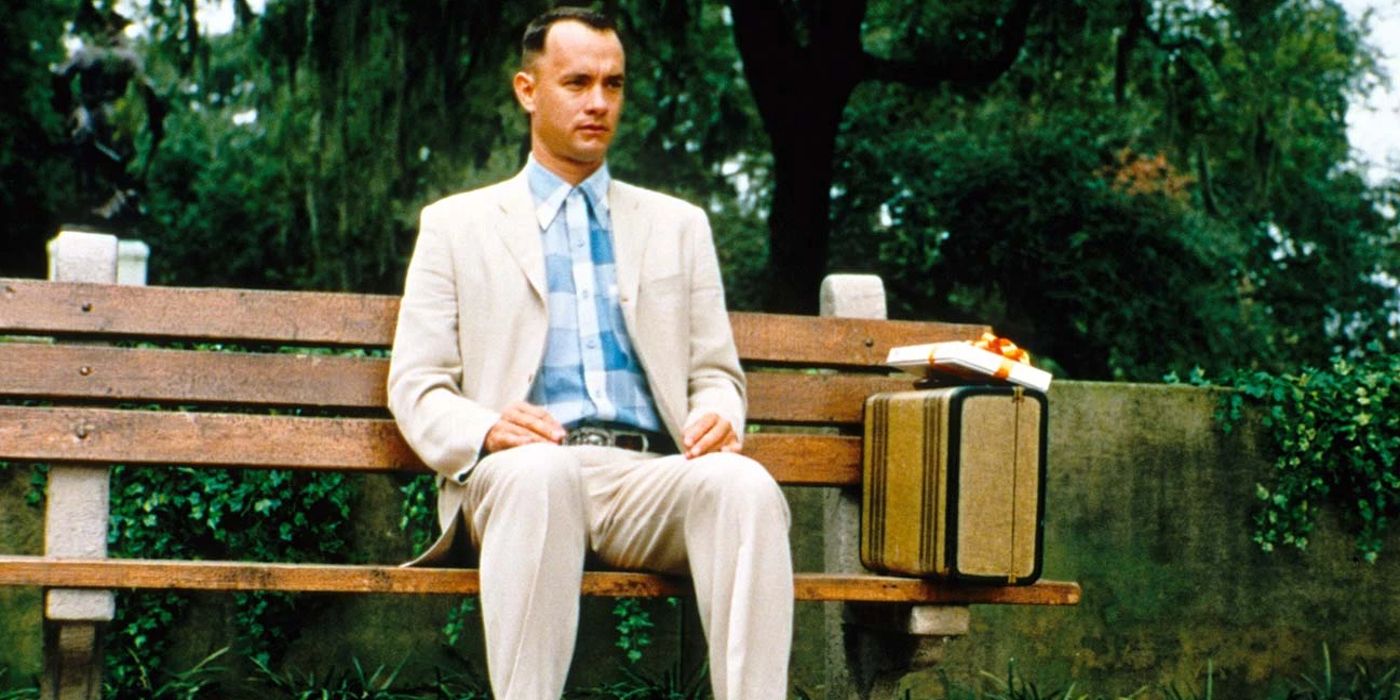
Award
Category
Recipients and nominees
Result
67th Academy Awards
Best Picture
Wendy Finerman, Steve Starkey, and Steve Tisch
Won
Best Director
Robert Zemeckis
Won
Best Actor
Tom Hanks
Won
Best Supporting Actor[
Gary Sinise
Nominated
Best Screenplay Based on Material Previously Produced or Published (Adapted Screenplay)
Eric Roth
Won
Best Art Direction
Rick Carter and Nancy Haigh
Nominated
Best Cinematography
Don Burgess
Nominated
Best Film Editing
Arthur Schmidt
Won
Best Makeup
Daniel C. Striepeke, Judith A. Cory and Hallie D’Amore
Nominated
Best Original Score
Alan Silvestri
Nominated
Best Sound
Randy Thom, Tom Johnson, Dennis S. Sands, and William B. Kaplan
Nominated
Best Sound Effects Editing
Gloria S. Borders and Randy Thom
Nominated
Best Visual Effects
Ken Ralston, George Murphy, Allen Hall and Stephen Rosenbaum
Won
1995 Saturn Awards
Best Supporting Actor
Gary Sinise
Won
Best Fantasy Film
Wendy Finerman, Steve Starkey, and Steve Tisch
Won
Best Actor
Tom Hanks
Nominated
Best Music
Alan Silvestri
Nominated
Best Special Effects
Ken Ralston
Nominated
Best Writing
Eric Roth
Nominated
1995 Amanda Awards
Best Film – International
Won
1995 American Cinema Editors
Best Edited Feature Film
Arthur Schmidt
Won
1995 American Comedy Awards
Funniest Actor in a Motion Picture – Leading Role
Tom Hanks
Won
1995 American Society of Cinematographers
Outstanding Achievement in Cinematography in Theatrical Releases
Don Burgess
Nominated
1995 BAFTA Film Awards
Outstanding Achievement in Special Effects
Ken Ralston, George Murphy, Stephen Rosenbaum, Doug Chiang, and Allen Hall
Won
Best Actor in a Leading Role
Tom Hanks
Nominated
Best Actress in a Supporting Role
Sally Field
Nominated
Best Film
Wendy Finerman, Steve Tisch, Steve Starkey, and Robert Zemeckis
Nominated
Best Cinematography
Don Burgess
Nominated
David Lean Award for Direction
Robert Zemeckis
Nominated
Best Editing
Arthur Schmidt
Nominated
Best Adapted Screenplay
Eric Roth
Nominated
1995 Casting Society of America
Best Casting for Feature Film – Drama
Ellen Lewis
Nominated
1995 Chicago Film Critics Association Awards
Best Actor
Tom Hanks
Won
1995 Directors Guild of America
Outstanding Directorial Achievement in Motion Pictures
Robert Zemeckis, Charles Newirth, Bruce Moriarity, Cherylanne Martin, and Dana J. Kuznetzkoff
Won
1995 Golden Globe Awards
Best Actor – Motion Picture Drama
Tom Hanks
Won
Best Director
Robert Zemeckis
Won
Best Motion Picture – Drama
Wendy Finerman
Won
Best Supporting Actor – Motion Picture
Gary Sinise
Nominated
Best Supporting Actress – Motion Picture
Robin Wright
Nominated
Best Original Score
Alan Silvestri
Nominated
Best Screenplay
Eric Roth
Nominated
30th Guldbagge Awards
Best Foreign Film
Nominated
1995 MTV Movie Awards
Best Breakthrough Performance
Mykelti Williamson
Nominated
Best Male Performance
Tom Hanks
Nominated
Best Movie
Nominated
1995 Motion Picture Sound Editors – Golden Reel Award
Best Sound Editing
Won
1994 National Board of Review of Motion Pictures
Best Actor
Tom Hanks
Won
Best Supporting Actor
Gary Sinise
Won
Best Picture
Won
1995 PGA Golden Laurel Awards
Motion Picture Producer of the Year Award
Wendy Finerman, Steve Tisch, Steve Starkey, and Charles Newirth
Won
1995 People’s Choice Awards
Favorite All-Around Motion Picture
Won
Favorite Dramatic Motion Picture
Won
Favorite Actor in a Dramatic Motion Picture
Tom Hanks
Won
1995 Screen Actors Guild Awards
Outstanding Performance by a Male Actor in a Leading Role
Tom Hanks
Won
Outstanding Performance by a Male Actor in a Supporting Role
Gary Sinise
Nominated
Outstanding Performance by a Female Actor in a Supporting Role
Sally Field
Nominated
Outstanding Performance by a Female Actor in a Supporting Role
Robin Wright
Nominated
1995 Writers Guild of America Awards
Best Screenplay Adapted from Another Medium
Eric Roth
Won
1995 Young Artist Awards
Best Performance in a Feature Film – Young Actor 10 or Younger
Haley Joel Osment
Won
Best Performance in a Feature Film – Young Actress 10 or Younger
Hanna R. Hall
Won
Best Performance in a Feature Film – Young Actor Co-Starring
Michael Conner Humphreys
Nominated
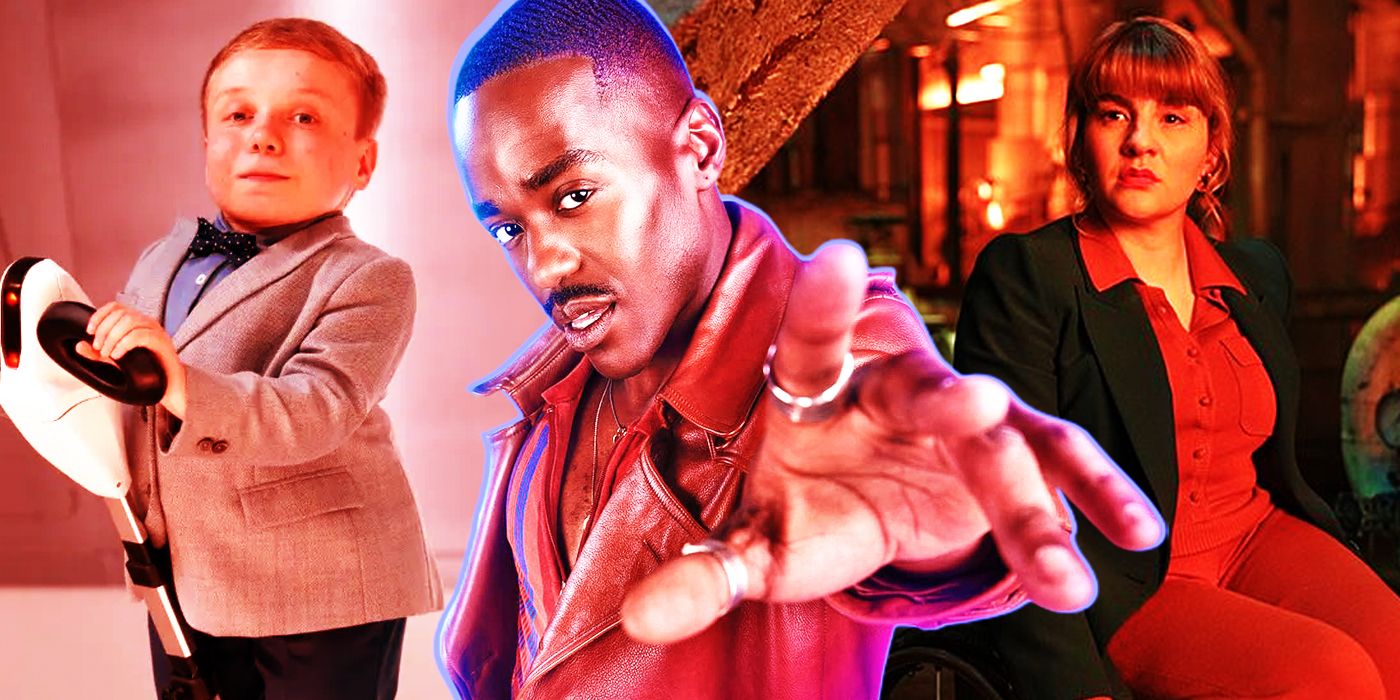 Related Doctor Who Is Finally Placing Disability Representation at the Forefront of Its New Era
Related Doctor Who Is Finally Placing Disability Representation at the Forefront of Its New Era
Doctor Who is undoubtedly a much-loved sci-fi series. However, its increased disability representation has the potential to take it to new heights.
While the depiction might not be completely accurate, Forrest Gump gives neurodivergent people a hero with whom to identify. Gump wasn’t written as a side character or a running joke. While his exploits lean toward the ridiculous, he overcomes and succeeds despite the biases of those around him. In doing so, he becomes a defiant example of human perseverance, in spite of whatever diagnosis he might have. It helps that he’s also someone from a small town and has humble means, increasing his relatability. If anything, the lack of a concrete Forrest Gump diagnosis means that anyone can identify with him and see him as an admirable character.
Regardless of how one interprets the movie’s events, a single significant fact remains: while the movie is based on a book, Forrest Gump is a work of fiction that doesn’t take itself entirely seriously. Instead, Forrest Gump should be enjoyed for what it is, a ride through the good times and bad with a lovable and likely autistic man. Take what pleasures the movie offers and just maybe relate to the struggles facing a neurodivergent individual. After all, Forrest Gump is a story about the human journey, and it holds plenty to resonate with us all. This is why the movie has continued to be so acclaimed over the years among various groups of people.
 Forrest Gump
Forrest Gump
The history of the United States from the 1950s to the ’70s unfolds from the perspective of an Alabama man with an IQ of 75, who yearns to be reunited with his childhood sweetheart.
Director Robert Zemeckis
Release Date July 6, 1994
Studio Paramount Pictures
Cast Tom Hanks , Robin Wright , Gary Sinise , Sally Field , Sam Anderson
Writers Eric Roth , Winston Groom
Runtime 2 hours 22 minutes
Box Office $678.2 million
Production Company Paramount Pictures, The Steve Tisch Company, Wendy Finerman Productions
Budget $55 million
Expand

